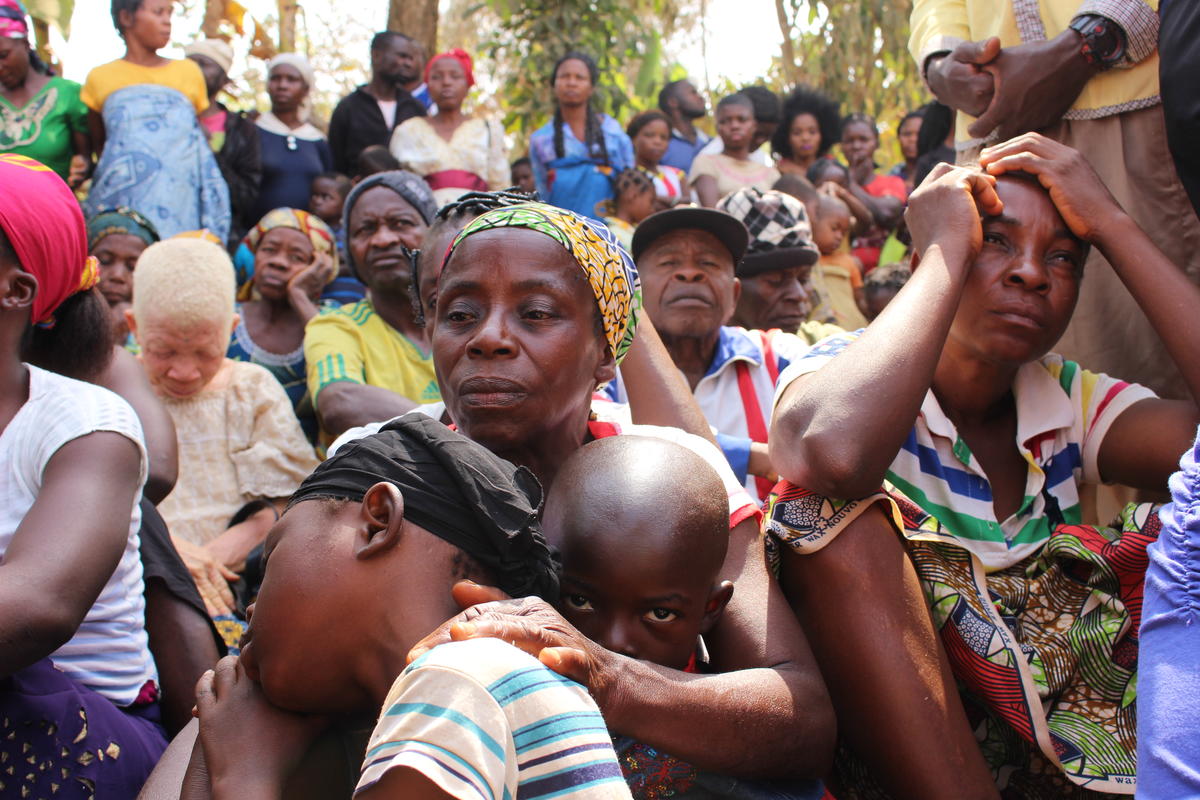Concern grows for women and children fleeing Cameroon
Concern grows for women and children fleeing Cameroon

With the number of people fleeing English-speaking areas of Cameroon for Nigeria growing, UNHCR, the UN Refugee Agency, is increasingly concerned at the plight of women and children among them.
Women and children represent about 80 per cent of the approximately 10,000 refugees registered so far in eastern Nigeria’s Cross River state. Thousands more are among the population of unregistered Cameroonians in neighbouring states.
Some of these are boys and girls who fled to Nigeria alone. Unaccompanied and separated children are particularly affected by difficult access to food and the lack of subsistence opportunities.
UNHCR staff have received numerous reports that children have to work or beg to survive or to help their families. Many children are unable to attend school, as they lack both the time and funds for education. Although schooling in Nigeria is free, there are still some basic costs, such as those for school materials.
UNHCR is working with the Nigerian authorities to assist with the reunification of separated children with their families, to provide unaccompanied children with protection services and to restore the basic right of all children to education. Some children arriving to Nigeria reported to UNHCR that they had been out of school in Cameroon for the whole of the past academic year.
For women, the lack of work combined with the over-stretched reception facilities, creates a higher risk of sexual and gender-based violence, particularly from survival sex. So far, only a limited number of such cases have been recorded, mainly in the Amana community of Cross River state. However, UNHCR is concerned that many more incidents go unreported or are referred only to community elders. Incidents of domestic violence, as well as cases of teenage pregnancies involving girls as young as 14, have also been reported.
In Nigeria’s Benue state, where two school buildings have been reserved by authorities to serve as temporary refugee hosting accommodation, women and their families are forced to sleep inside communal school halls, deprived of private space and the right to family dignity. For them – and for the rest of the population living in temporary tents hastily built next to local residences – sufficient and appropriate shelter is key to ensure adequate registration, systematic aid distribution and reduced protection risks.
UNHCR is currently working with the Nigerian authorities to identify sites away from the border, where the refugees can be hosted according to international standards. We are also establishing offices in the towns of Calabar and Adikpo to better provide assistance and protection to the women and children. Our support includes food, basic relief items, health, and water and sanitation facilities.
UNHCR recognizes the enormous generosity of the Nigerian border communities, opening their doors to Cameroonian refugees. Almost all of those registered reported that they had left their homes because of insecurity and that they would go back only when it’s safe to do so.
For more information on this topic, please contact:
- In Abuja, Elizabeth Mpimbaza, [email protected], +234 809 016 1438
- In Yaoundé, Xavier Bourgois, [email protected], +237 690 049 996
- In Dakar, Romain Desclous, [email protected], +221 786 396 385
- In Geneva, Aikaterini Kitidi, [email protected], +41 79 580 8334









